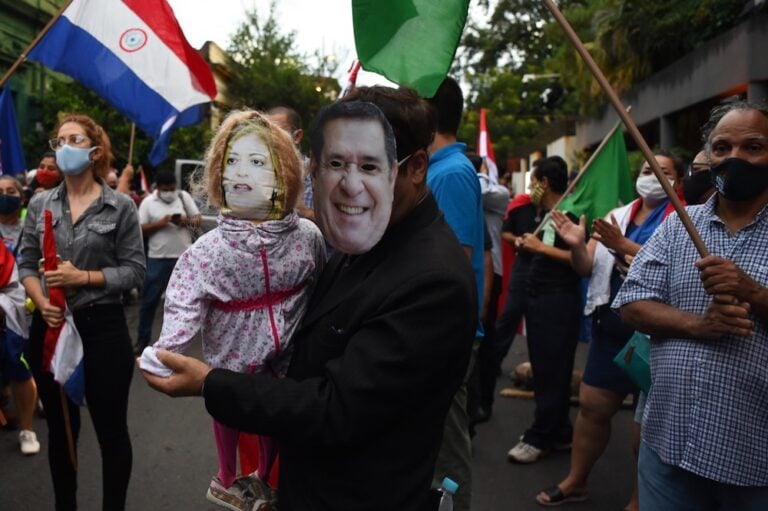(PFC/IFEX) – On 17 December 2002, Judge José Waldir Servín handed down a decision in the trial, which began in 1997, of journalist Benjamín Fernández Bogado. The journalist was found guilty of defamation, fined over US$1,200 and ordered to pay approximately US$1,400 in compensation to the plaintiff. On 6 December 1996, while Fernández Bogado was […]
(PFC/IFEX) – On 17 December 2002, Judge José Waldir Servín handed down a decision in the trial, which began in 1997, of journalist Benjamín Fernández Bogado. The journalist was found guilty of defamation, fined over US$1,200 and ordered to pay approximately US$1,400 in compensation to the plaintiff.
On 6 December 1996, while Fernández Bogado was the news director for the Channel 9 television station, statements were aired on the Channel 9 news programme “24 horas”, linking lawyer and current senatorial candidate Adalberto Fox to the mafia. Months earlier, Fox had been removed from his post as judge due to irregularities in his work.
Judge Servín convicted Fernández Bogado even though the journalist did not make the accusatory statements, the matter in question was in the public interest and the plaintiff did not demonstrate that there had been an intention to inflict harm – conditions that are essential in order to convict someone for defamation.
The Declaration of Principles on Freedom of Expression of the Inter-American Commission on Human Rights (IACHR) stipulates that:
“10. Privacy laws should not inhibit or restrict investigation and dissemination of information of public interest. The protection of a person’s reputation should only be guaranteed through civil sanctions in those cases in which the person offended is a public official, a public person or a private person who has voluntarily become involved in matters of public interest. In addition, in these cases, it must be proven that in disseminating the news, the social communicator had the specific intent to inflict harm, was fully aware that false news was disseminated, or acted with gross negligence in efforts to determine the truth or falsity of such news.”
PFC believes that Judge Servín’s decision violates the right to freedom of expression and sets an ill-fated precedent in cases involving crimes against honour.
According to PFC, protecting the honour of officials and other public representatives inhibits criticism, thus limiting everyone’s right to express an opinion on public issues and seriously affecting the democratic relationships that must prevail in our societies. When it concerns government officials implicated in corruption, the protection of honour thus becomes a mechanism to prevent disclosure.
A number of Paraguayan public officials, including President Luis González Macchi, are said to be involved in acts of corruption. Moreover, serious restrictions on accessing information exist in Paraguay, and journalists who investigate corruption cases are extremely vulnerable to reprisals. Subsequently, decisions such as the one handed down by Judge Servín cannot be taken as isolated incidents, but rather as a reflection of an institutional practice to suppress people’s right to be informed and watch over public matters.
For this alert, additional reports and further information on the case, see: http://portal-pfc.org/perseguidos/2002/115.html
Recommended Action
Send appeals to the Supreme Court chair:
– protesting Judge Servín’s sentence against journalist Fernández Bogado
Appeals To
Carlos Fernandez Gadea
Supreme Court Chair
Tel: +595 21 424 212 / 15
E-mail: cdya@pj.gov.py
Please copy appeals to the source if possible.


